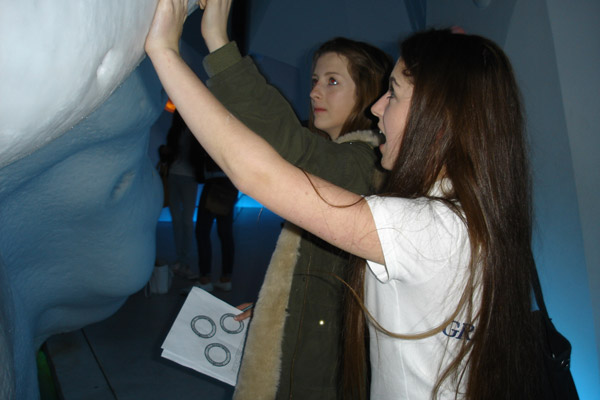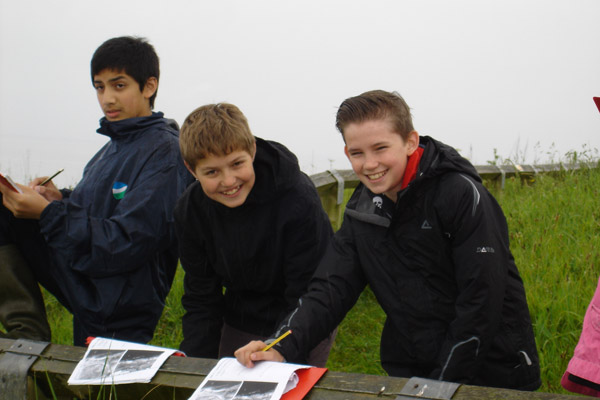‘Geography is the subject which holds the key to our future.’ – Michael Palin
The Geography Department at Teesside High aims to be progressive in its teaching of such a dynamic, adventurous and valuable subject which is concerned with the world all around us. So many of the world’s current problems boil down to Geography and we hope that our students develop a fascination and understanding of the interaction between physical and human processes at work on our planet and an ability to empathize with other cultures and societies.
KEY STAGE THREE CURRICULUM
Topics covered at Key Stage 3 are highlighted below. Our teaching focuses on developing the skills to describe, explain and justify the social, economic and environmental aspects of Geographical Issues whilst encouraging local and global awareness.
Topics covered in Year 7
- Thinking Geographically/ Fantastic Places
- Map Reading Skills
- Settlement
- River Landforms and River Basin Management
Topics covered in Year 8
- Africa
- Brazil
- Coastal Landforms and Management
- Tectonic Hazards
Topics covered in Year 9
- Population/Migration
- Economic Development
- Fair Trade and Aid (reducing the rich/poor divide)
- Polar regions and Glaciation
KEY STAGE FOUR CURRICULUM
We follow the OCR Specification B which is a balance of theoretical and practical work.
Pupils work on the following four topics:-
- Rivers and Coasts
- Population and Settlement
- Tectonic and Atmospheric Hazards
- Economic Development
The current GCSE assessment structure is shown below; however, this will be changing with new GCSE Geography specifications being introduced for first teaching in 2016.
- Inquiry – This is one piece of fieldwork which is completed after a field trip, under controlled conditions, and is worth 25% of the final grade.
- The June examination is worth 50%of the total. It examines 3 of the themes in depth.
- 25% of the total marks are awarded from the Sustainable Decision-Making Exercise examination taken in June; this examines the remaining theme.
A-LEVEL CURRICULUM
Students study OCR Geography – AS (H083) and A2 (H483)
AS GEOGRAPHY COMPRISES 2 UNITS: –
- Managing the Physical Environment:-
- Rivers
- Coasts
- Cold Environments
- Managing the Human Environment:-
- Managing Urban Change
- Managing Rural Change
- Tourism
A2 GEOGRAPHY COMPRISES 2 UNITS: –
- Global Issues:-
- Earth Hazards
- Ecosystems and Environments under threat
- Population and Resources
- Globalization
- Geographical Skills.
Students develop and carry out a fieldwork investigation to answer short responses and extended questions.
DIGITAL LEARNING
In Geography we mainly use digital learning for research. It is especially useful for enabling students to carry out ‘virtual’ fieldwork and to find photographs of examples of large scale and small scale landforms. We use Google Earth to find maps and aerial views. There is a wealth of useful, short youtube clips for showing students living conditions and cultures in countries around the world. Classes have used the Ipads to create i-movies, to engage in 5-minute fun facts and complete a QR code trail as well as making use of the Popplet App for mind mapping.
ENRICHMENT ACTIVITIES
We have a school membership for the Geographical Association and the Royal Geographical Society and have entered students in their annual competitions. We were delighted when one of our students was Highly Commended in the 2013 Young Geographer of the Year competition.
Students go on a variety of field trips. We move beyond ‘doorstep’ fieldwork and aim to provide a discrete day trip for each year group. These include river studies in Osmotherley for Y7s, the North Durham coast for Y8s and Edinburgh for our Y9s. We follow the River Tees from its source to its mouth, study coastal management between Sandsend and Whitby and visit Doxford International Business Park and Cadbury World when studying Industrial Location with our GCSE groups. In Y12 there is a day trip to Whitby and a weekend residential field trip to the Lake District. The highlight of the Geography Department has been 2 recent overseas trips, for year 8 right up to 6th form students, to Iceland. Miss White is the school co-coordinator and runs the Eco club at lunchtime where students get the opportunity to investigate Environmental Geography issues.
WHERE DOES GEOGRAPHY LEAD YOU?
Geography has been defined by the Government as a ‘Unique Bridging Subject’ or a ‘facilitating subject’ and thus provides support to the study of other subjects as well as standing alone as a subject in its own right. The Guardian newspaper in 2010 was quoted as saying that “Studying geography arms students with a mix of skills employers want to see” Geographers can work, for example, with development or aid agencies, in environmental work, using Geographical Information Systems, in the census office or in tourism and recreation. Many Geography graduates enter three fields of employment: administration and management; marketing or financial work and statistics show that compared with other subject Geographers are amongst the most employable.
STAFF NAMES
Mrs. Katherine Chamberlain –Head of Geography
Miss Georgia White –Teacher of Geography and Classics.

